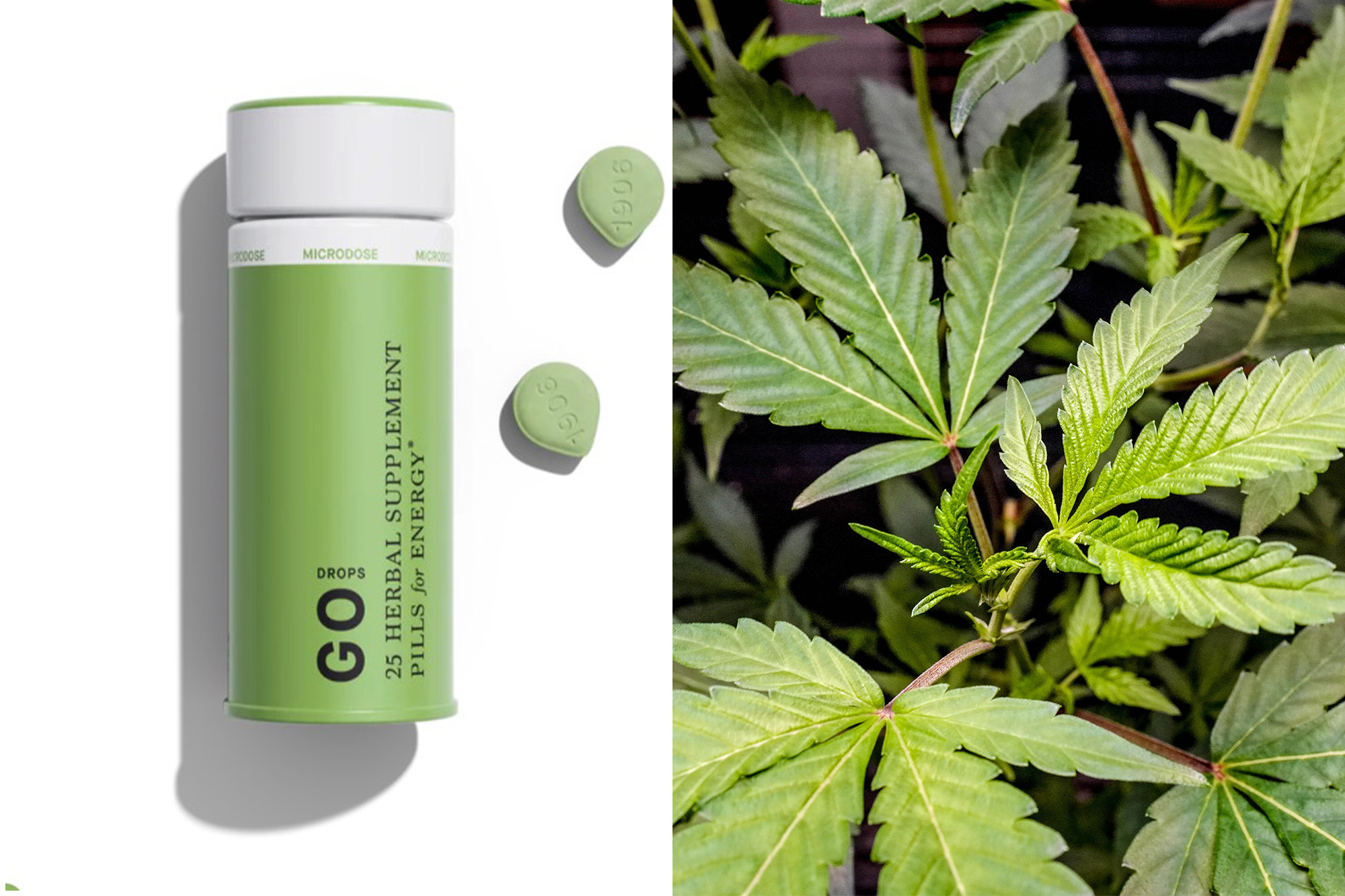
No more wake up and bake!
State regulators have banned the distribution of cannabis pills that are also laced with caffeine — a combination that has been a popular choice for fitness enthusiasts and office professionals, The Post has learned.
The New York Office of Cannabis Management issued a restraining order to Hudson Cannabis, an upstate marijuana/hemp farmer and processor that provides the main ingredients for the related 1906 brand of cannabis.
1906 sells two different “drops” or pills, with low doses of THC and higher amounts of caffeine marketed as “Go” and “Genius” in small cylinder containers.
The firm’s “Go” drops contain 80 milligrams of caffeine and 2 mg of THC extract and 5 mg of cannabidiol. [CBD]/ weed extract and other herbal or plant-based ingredients. Go is marketed as an energy booster.
Its Genius pills contain 20 mg of caffeine mixed with 2.5 mg of TCH and 5 mg of combined CBD and Cannabigerol (CBG), also found in the marijuana plant, and other herbal or plant extracts. It is touted as a “brain power” supplement to increase focus, memory and calmness.
The 1906 cannabis pills have been traded in New York since February last year.
But OCM regulators issued a “quarantine,” or restraining order, for the 1906 tablet on July 24 after inspecting the combined 1906 cannabis-caffeine blend products at the Hudson cannabis facility.
“The evidence supports that the ingredients used in the product are not permitted to be used in cannabis products,” said the quarantine order signed by inspectors Natalie DeLong and Matthew Hinken.
The order said the mixed ingredients “may endanger public health or safety.”
The 1906 Marketing Company, which has sold in seven states including New York, is appealing the decision barring the sale of $1 million of its inventory in New York.
“Hudson Cannabis and our production facilities fully comply with New York State cannabis regulations,” Melany Dobson, co-founder of Hudson Cannabis, said in a statement to The Post on Sunday.
“We are surprised by this state’s decision to quarantine products that have been on the market for more than 18 months, are legally sold in states across the country, and to our knowledge have had zero reported adverse effects.
“This kind of arbitrary and capricious behavior, preventing the sale of safe and tested products available across the country, only serves to profit from the illegal market Governor Hochul claims he cares about shutting down,” Dobson said.
A lawyer for 1906’s parent firm Nuka Enterprises, Matthew Schweber, said the OCM cited what he described as an odd decaffeination rule that prohibits the introduction of pure caffeine into cannabis products but allows “natural caffeine.”
The rule states: “A processor is prohibited from processing any product containing any non-phytocannabinoid ingredient that would increase potency, toxicity or addictive potential, or that would create an unsafe combination, known or unknown, with other substances psychoactive. . This ban will not apply to products containing natural caffeine, such as coffee, tea or chocolate.”
OCM claims that caffeine increases “potency, toxicity, or addictive potential or … creates an unsafe combination [with cannabinoids]”, Schweber said.
“But the OCM can’t say what inhibition exactly caffeine causes? Does caffeine increase the ‘potency’ of cannabis? Does it increase its ‘toxicity’ or ‘addiction potential’? Does it create ‘an unsafe combination?’ Schweber said.
“They cannot say. So they have documented evidence of any of the dangers of combining caffeine and cannabis? No, of course not,” said the lawyer.
Schweber said the “crazy” part is that state regulators don’t explain why “natural caffeine” is OK but added caffeine is not.
“So do they have any evidence to support the change? No, of course not,” he said.
By comparison, OCM allows the sale of Harney Brothers Cannabis-Infused Nitro Coffee, which contains 225 mg of caffeine per serving,” Schweber said.
Even some of the 63 cannabis retailers in the metro area that carry the 1906 tablets were surprised that the cannabis-caffeine products were pulled from the market.
There are now 222 licensed dispensaries throughout the Empire State.
“I am very surprised. It’s completely unexpected,” said Osbert Orduna, CEO of The Cannabis Place in Middle Village, Queens.
“1906 products are very popular among all age groups. It’s a big seller. We have professionals using 1906 as well as clients who exercise, go to the gym. It has an ease of use. People are comfortable taking a tablet,” he said.
Orduna said coffee and cannabis are considered a good combination for alertness and relaxation.
“Adult customers have to decide if they want the product,” he said.
The Office of Cannabis Management did not respond to a Post request for comment.
The jury seems to be open in the medical community on what health impact – harms or benefits – can come from mixing cannabis and caffeine.
Medical research is limited on how caffeine and marijuana interact with each other. But there is some evidence to show that consuming the two together may produce different effects in a user than taking them separately.
Caffeine is known to act as a stimulant to give people energy, while marijuana and cannabis can act as stimulants or depressants. The effects of weed vary, but many people say the buzz makes them mellow or relaxed.
A 2012 study that looked at how a combination of caffeine and low-dose cannabis affected rats suggested that the combination appeared to negatively affect working memory more than a higher dose of weed extract.
#Exclusive #wakeupandbake #bans #sale #caffeineinfused #cannabis
Image Source : nypost.com